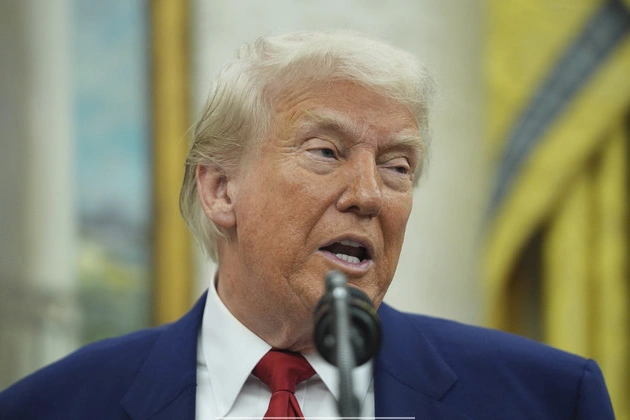
The Trump administration is escalating its campaign against Harvard University — and looking for new ways to bring the storied institution to heel.
The White House convened officials from nearly a dozen agencies on Wednesday to brainstorm additional punitive measures, according to one administration official and a second person familiar with the meeting, who were granted anonymity to share details. The administration official said that forthcoming actions are expected from the State, Treasury, Health and Human Services and Justice departments, among others, and could happen as early as next month.
New Strategies Unveiled
The push comes as the White House regroups after a federal judge blocked its move to bar Harvard from enrolling international students, and underscores how President Donald Trump has grown increasingly invested in the battle.
Even as some in the administration privately grouse that the aggressive posture is allowing Harvard to win public sympathy, Trump has kept up the attacks, threatening in a post last week to revoke its tax-exempt status and chastising Harvard again Wednesday during an unrelated press conference.
“Harvard is treating our country with great disrespect and all they’re doing is getting in deeper and deeper and deeper,” Trump told reporters Wednesday.
But with the low-hanging policy options already underway, the administration knows it will need to get more creative to keep squeezing the school, according to two administration officials and another person familiar with the talks, who like others in the story were granted anonymity to share details of private conversations.
The administration would not comment on what it is considering but some options include having the Department of Justice expand its investigation into the university’s admissions policies or cutting money to medical institutions affiliated with Harvard.
“The latest moves against Harvard are truly just scratching the surface,” said White House spokesperson Harrison Fields, without specifying what else the administration has to bring Harvard to heel. “Harvard decided to litigate this on MSNBC, the now defunded NPR, and the ratings-disaster CNN instead of acting like adults like many of their competitors have done and engaging in fruitful conversations and actions that would have saved them from their self-inflicted demise.”
Harvard University declined to comment.
The relentless focus has some inside the administration worrying that the longer the fight the greater the risk that the White House overplays its hand.
“We’re fighting a losing battle,” one of the administration officials said, acknowledging that the university has the narrative upper hand when it comes to the effort to revoke Harvard’s student visas. “We’ve taken one of the most evil institutions and made them the victim.”
The fight comes amid the Trump administration’s broader efforts to reshape not just American government but the institutions that have long surrounded it. In addition to Harvard, the White House has taken on a slate of other prestigious universities, including other Ivy League schools and the University of California system, as part of a broader siege against cultural institutions it sees as out of step with the administration, from Big Law firms to the Kennedy Center.
The conflict between the Trump administration and the Ivy League university has been brewing since February, but it escalated dramatically after an April 11 letter replete with demands was mistakenly sent to Harvard at a time when a deal to avoid confrontation was a real possibility.
Until that letter was sent, it seemed possible a deal could be reached. But once it was sent communication broke down.
In the six weeks since the letter was mistakenly sent, the administration froze $2.2 billion in multiyear research grants and axed an additional $60 million in contracts; cut 500 grants from the National Institutes of Health for Harvard-affiliated institutions; barred the university from any future grants; and launched multiple investigations into Harvard’s practices by the departments of Justice, Health, Education and Homeland Security and the Equal Employment Opportunity Commission.
Harvard, in response, took the administration to court, where on Thursday a federal judge in Massachusetts blocked the administration’s effort to bar international students. That block will remain in place as both sides negotiate over a potential injunction that would preserve the status quo while the case moves forward.
One of the people familiar with the talks said that while the April 11 letter did inflame tensions, the university could have found a way to move on. Instead, it has refused to have any dialogue with the White House and stopped trying to appease the administration as it tries to win in the court of public opinion, the person said.
“They think their audience is the alumni, the funders and the students and the faculty,” the person said. “But there’s another audience that they’re totally not working with. I just don’t think that’s smart long term.”











